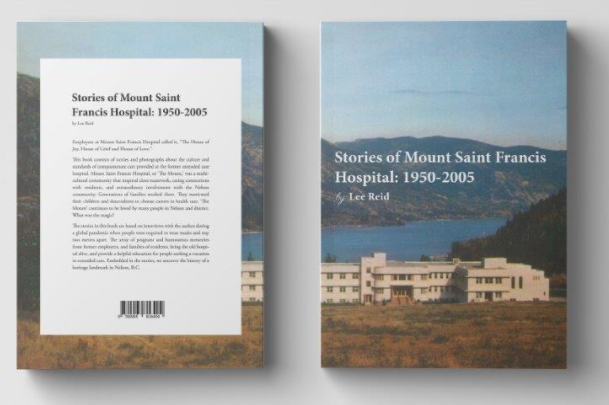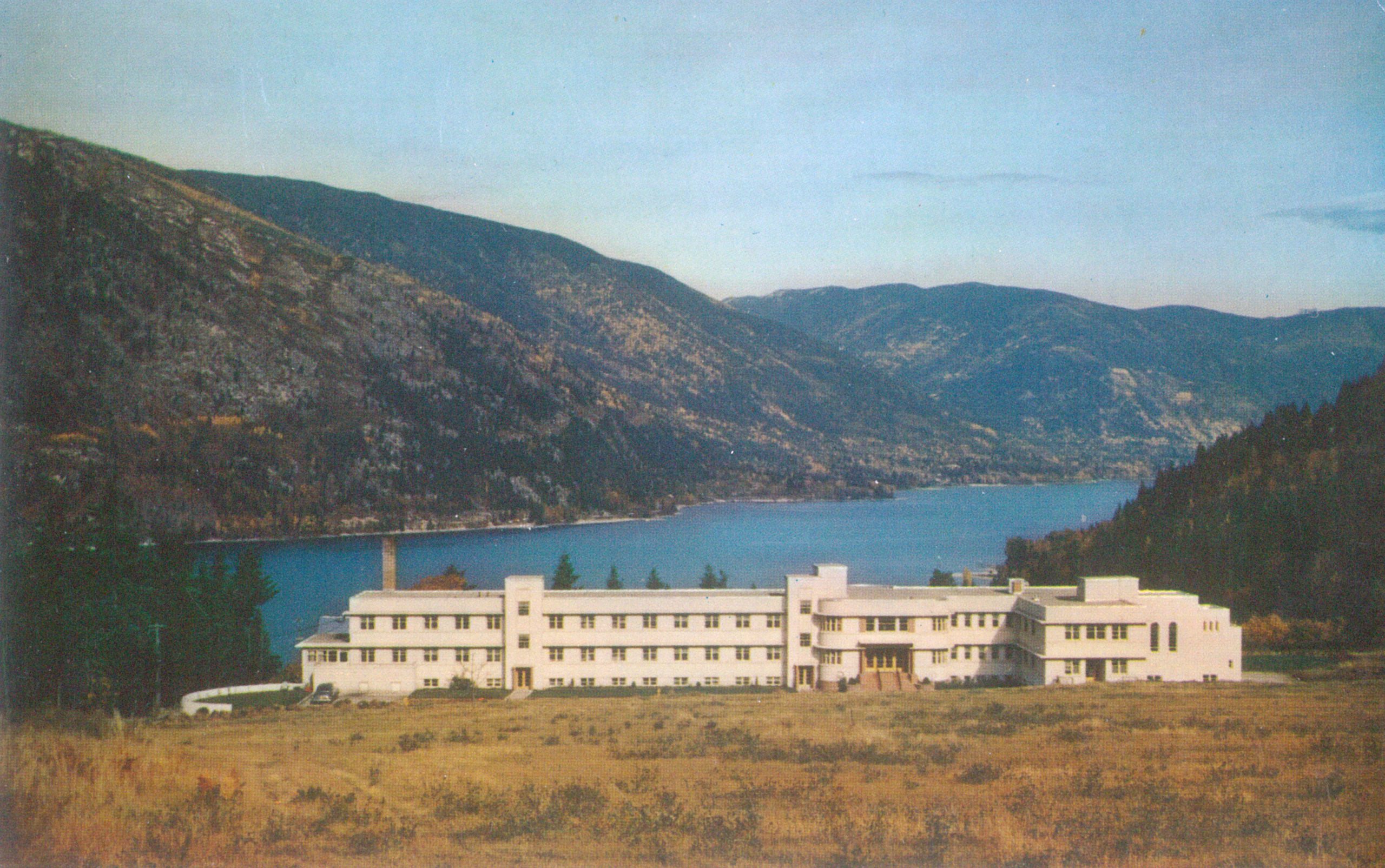As Interior Health begins to demolish a Nelson heritage building, a new book looks at the people who worked and lived there.
Lee Reid, the author of Stories of Mount St. Francis Hospital 1950-2005, says she was inspired by meeting former staff of the long-term care facility and the families of those who were cared for or died there.
In 2018, she was invited to attend planning meetings about the future of the long-shuttered facility, but prior to that she had no personal connection to the Mount. She became part of an advocacy group interested in resurrecting or restoring the building, or at a minimum, preserving some of its historic architecture.
“My curiosity was ‘Why do people care about this place? What really happened there?’ You can see how ugly in some ways the building looks because it’s deteriorated and it’s covered in graffiti and it looks dark and scares a lot of people. I was curious why people were passionate about the place and wanted to rally around it.”
Reid began cold calling former employees and found many were willing to share their stories about working there.
“People spoke with such love,” she says. “It was just astonishing the amount of love, care, respect, and how that carried on in their lives and in their hearts long past the closure of Mount St. Francis. I realized there was still quite a bonded community of MSFers who connect on Facebook and share memorials, events in each other’s lives. They still meet.”
 She gathered stories from many departments: aides, nurses, a doctor, administrators, pharmacists, and engineers, some of whom now work at Kootenay Lake Hospital or Jubilee Manor. Others spent there entire working careers at the Mount.
She gathered stories from many departments: aides, nurses, a doctor, administrators, pharmacists, and engineers, some of whom now work at Kootenay Lake Hospital or Jubilee Manor. Others spent there entire working careers at the Mount.
Reid likens it to “opening the door to Narnia” and discovering a “hidden world of compassionate care in a setting I would never have considered it possible.”
As she learned through her interviews, although it had rules, there was a great deal of workplace flexibility that allowed for different departments to help each other.
“The teamwork was extraordinary,” she says. “Everybody had a higher value which was quality, compassionate care at end of life. The ethic was care, not cure. It was accepted that people who stayed at the Mount as patients would probably die. So there was a different moral tone. It was their commitment to the work and the place and love of community that I found absolutely stunning.”
As with her previous book, Growing Home: The Legacy of Kootenay Elders, Reid says she wanted to spotlight the stories of older people, and in this case, often traumatized people. The workers at the Mount created a family atmosphere, she says.
The facility’s closure in 2005 caused a tremendous amount of grieving, she says, and capped a “bitter” few years in which patients were continuously shifted in and out, people lost their jobs, and the HEU went on strike.
Many people told her they miss the place and its camaraderie, but others say the building was obsolete and difficult to work in: when the elevator broke, staff were forced to carry food — and residents — up and down two or three flights of stairs.
“There wasn’t a lot of privacy but there was a sense of community where people could help each other without having to sign a lot of forms,” Reid says. “Why wouldn’t they miss what became a very close-knit working family?”
Reid says she originally had no intention of turning her interviews into a book, but that is what happened with help from a team including primary editor Ria Moir, copy editor Donna Nett, photographer Elizabeth Cunningham, and Polychrome Creative.
Reid started the project before it became apparent that the Mount would be torn down.
“I wanted to create a legacy of the history and culture of the place. But we didn’t actually know what would happen to it. People said ‘I hope they can repurpose the building’ or ‘I don’t see why it would have to be torn down.’ Or ‘It was such a classy old building. Isn’t there anything else we can do with it?'”
Reid says she hopes her book is picked up by young people starting out in health care who feel discouraged, as it provides a case study in teamwork and how to keep up morale in challenging conditions.
The book is available directly from Reid, who can be contacted at [email protected].
You can hear the whole interview here:







